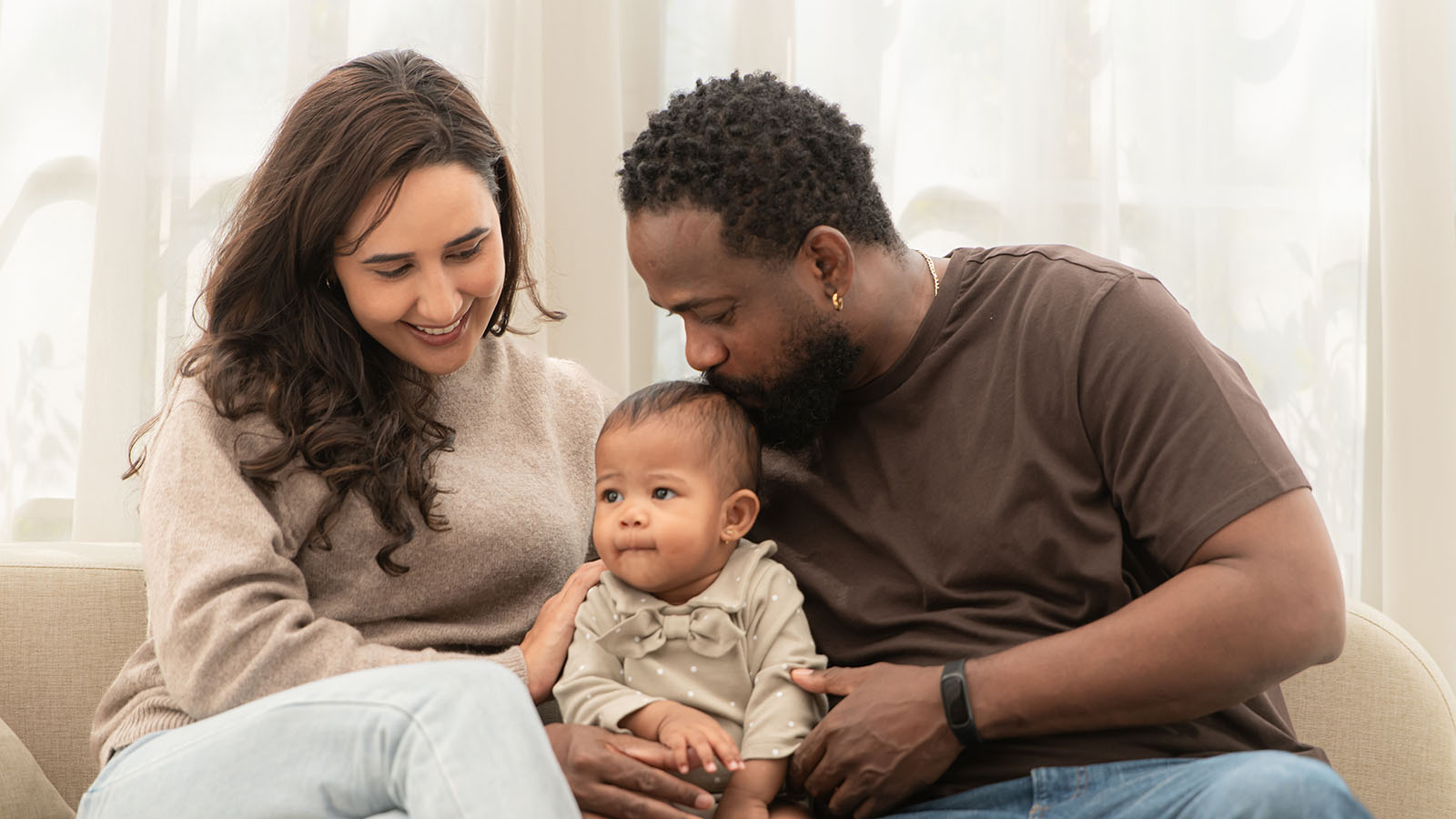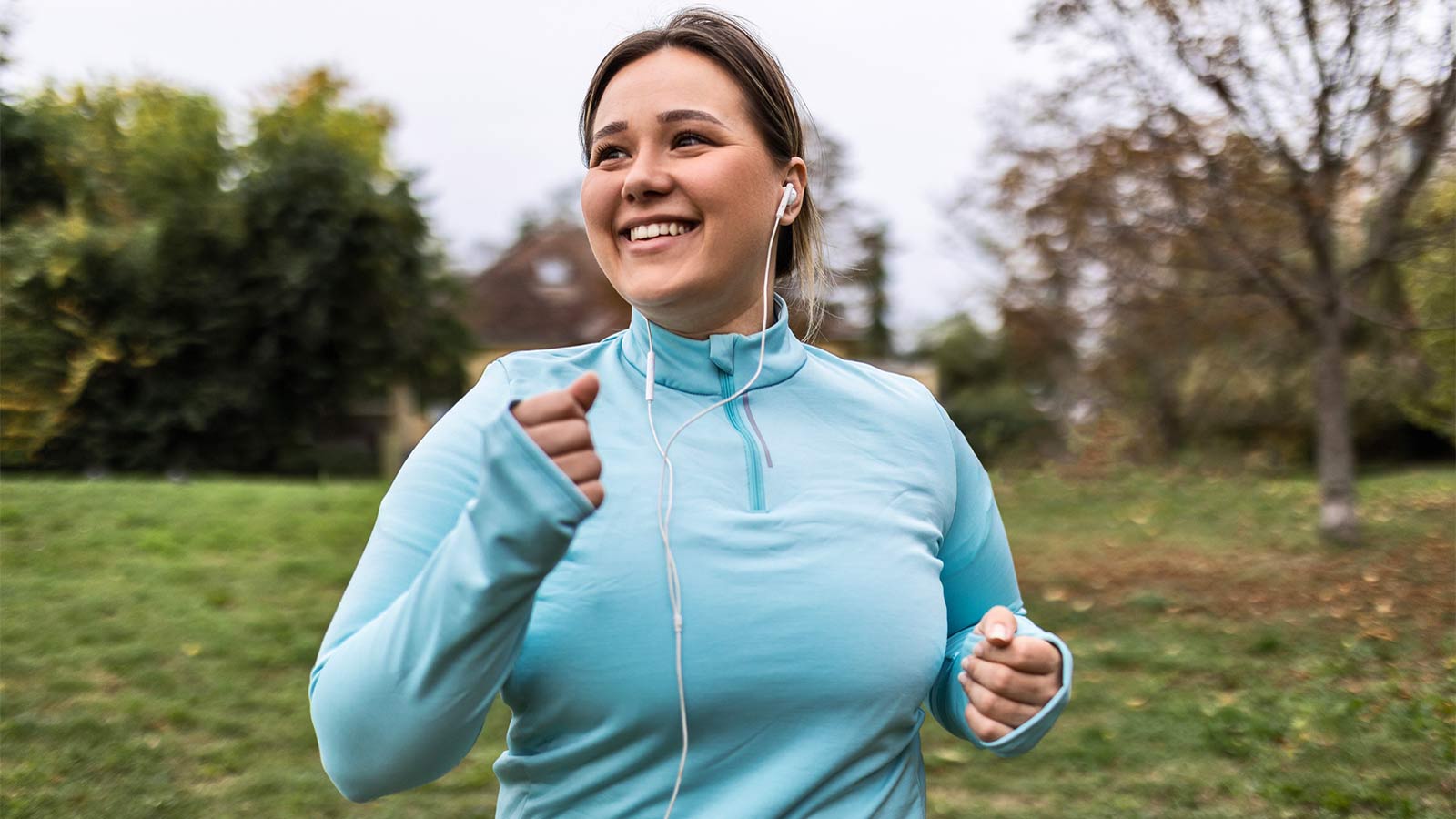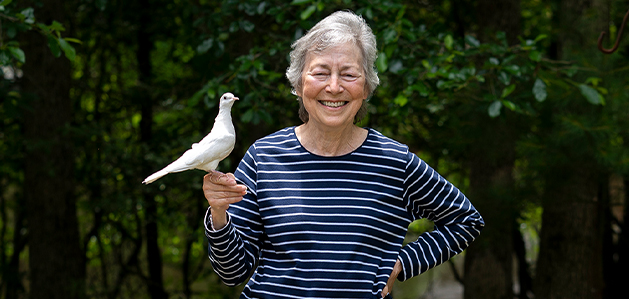Protect Your Child From HPV and Related Cancers
The HPV vaccine can protect your child from a cancer-causing sexually transmitted disease. An appointment with your pediatrician can get the process started.

By Randolph Deger, MD, Gynecologic Oncologist, Virtua Gynecologic Oncology
HPV (human papillomavirus) is the most common sexually transmitted disease. It's so common that nearly all sexually active men and women get it at some point in their lives. This is true even for people who only have sex with one person in their lifetime.
Almost all cervical cancer can be traced back to an HPV infection, and studies show links between HPV and a startling increase in several other types of cancer, including that of the head, neck, and anus.
Cancer risks aside, genital warts can also arise from HPV infection. These warts, which can appear as cauliflower-like growths on the vulva or inside the vagina, may require multiple visits to the doctor for freezing or laser treatment.
If your child is vaccinated, they’ll likely never have to deal with this scenario.
How do I get my family vaccinated?
The HPV vaccine, Gardasil-9, has been available in the United States since 2006. It’s been proven safe and effective in preventing transmission of the human papillomavirus (HPV) and the cancers it can cause.
Vaccination with Gardasil-9 is recommended for girls, young women, preteen boys, and young men. The vaccination process can be started by making an appointment with your family doctor or pediatrician.
For girls:
Gardasil 9 is recommended for all 11- and 12-year-old girls. If not vaccinated during that window, girls and young women ages 13 through 26 should still get the vaccine.
For boys:
Gardasil 9 is recommended for all 11- and 12-year-old boys. If not vaccinated during that window, boys and young men ages 13 through 21 should still get the vaccine.
For adults:
Under certain circumstances, adults ages 26 to 45 can receive the vaccine. Talk to your doctor.
Side effects:
Side effects are rare. The most common are similar to the side effects of almost all vaccines:
- Pain at the injection site
- Fever
- Headache
- Nausea
- Fainting (though rare)
How is the vaccine given?
The HPV vaccine is usually given in 2 doses over 6-12 months. People who start HPV vaccination at 15 years of age and older should get the vaccine as a 3-dose series, with the second dose given 1-2 months after the first dose and the third dose given 6 months after the first dose. Several exceptions exist to these age recommendations, so your healthcare provider is your best guide to what's appropriate for your child.
What’s most important is to give the vaccine long before any sexual activity with another person is expected for it to be most effective in preventing infection.
Schedule your child’s vaccine appointment
- Schedule your child for HPV vaccination at Virtua Primary Care.
There's So Much More to Explore
Discover expert insights, inspiring stories, health tips, and more by exploring the content below!

From Restless to Restful: How Movement Improves Sleep

5 Simple Ways to Spring Clean Your Wellness Routine

What to Expect From a Robotic Hysterectomy

When You Need A Hysterectomy Know Your Options

10 Reasons To Schedule Your Colonoscopy Today

9 Essential Reasons to Vaccinate Your Children

Take Control of Incontinence, Prolapse, and Other Pelvic Floor Disorders

How Can I Prevent Bone Loss and Osteoporosis?
Is an At-Home Colon Cancer Test a Good Alternative to a Colonoscopy?

The Truth About Menopause, Weight Gain, and Belly Fat

Shedding Light on Lesser-Known Menopause Symptoms and Solutions

Debunking The Myths About Vaginal Dryness

Best Foods for Kidney Health

What Causes Food Addiction And What Are The Signs

5 Essential Winter Foot Care Tips When You Have Diabetes

Sweet Music: Trust, Teamwork Save Justin from Heart Attack

Advanced Minimally Invasive GYN Surgery Puts You at the Center of Care

Your 10-Point Plan to Avoid Winter Weight Gain

Colitis Symptoms Under Control, Jennifer Is ‘Living My Best Life’

Be Fast and Spot the Signs of Stroke

Surprising Symptoms May Signal Stroke In Women

8 Key Steps to Better Blood Pressure Control

5 Back Stretches for the Work-From-Home Workweek

The HPV Vaccine: A Powerful Shield Against Cervical Cancer

How Does Breast Density Affect Your Mammogram?

Menopause: New Insights Into the Power of Hormone Replacement Therapy

How to Prevent and Treat Urinary Tract Infections

One New Heart Valve Saves Two Lives in the Tritten Family

6 Numbers Key to Keeping Your Heart Healthy

4 Easy Ways to Treat and Prevent Runner's Knee

Breast Cancer Diagnosis Inspires Catherine to Help Others

Five Mindfulness Tips That Can Help Heal Your Heart
Working from Home? Take a Quick Break to Stretch Your Wrists

Love Your Heart: Essential Care Tips for Every Stage of Life

How Do I Measure My Blood Pressure at Home?

How Do I Improve My Cholesterol Levels?

3 Ways to Reduce Your Stroke Risk

How the Unique Stages of a Womans Heart Affect Her Health

Sarah Wins Back Her Health After Crohn's Disease Diagnosis

Put Your Mammogram Appointment on the Top of Your To-Do List
Firefighter's Successful Lung Cancer Care at Virtua

A Breast Self-Exam Saved Kristen's Life

How Sex Keeps You Healthy as You Age

Protect Your Child From HPV and Related Cancers

Why IUDs Might Be The Most Effective Birth Control

5 Things You're Too Embarrassed to Tell Your OBGYN

4 Not-So-Crazy Questions to Ask Your Doctor

What to Know About Cervical Cancer Screenings
6 Tips for an Easier Colonoscopy Prep

Rectal Cancer Surgery Gets Eileen Back to her Magical Life | Virtua Health
Robotic Surgery Helps Shelly Haney Return to Her Happy Place

New Technology Precisely Marks Suspicious Breast Lumps Before Biopsy to Ease Patient Anxiety
3 Changes You Can Make Today to Lower Your Cancer Risk
Could Your Young Baseball Player Have Little League Elbow?
Master 3 Mens Health Issues
Personalized Breast Cancer Treatment Puts Choice In Womens Hands
Ready for Your Emergency
Toddler Candy-Colored Medicine Emergency
3 Tips to Preserve Your Teen's Hearing
Radiosurgery Delivers Targeted Treatment for Brain Tumors
Seeing a Social Worker at the Hospital
Start Reducing Your Cancer Risk Today
How to Recognize the Signs of Autism Spectrum Disorder in Children
Call Your OBGYN if You're Bleeding After Menopause
Know Your Endometrial Cancer Treatment Options
Robot Helps Spot Lung Cancer Early
6 Healthy Habits to Start in Your 20s for Better Lifelong Health
Restoring Appearance and Spirit After Breast Cancer
4 Essential Cancer Screenings
How to Overcome Colonoscopy Fears
What You Need To Know About Cancer And COVID 19 Risks
Prostate Cancer Screening: What You Need to Know
Military Veteran Pam Carpino Offers Hope to Women With Triple Negative Breast Cancer
Reclaim Your Strength and Spirit After Breast Cancer
The Cardio Oncology Team Protects Your Heart During Cancer Treatment
Coping with Body Changes After Breast Cancer Treatment
Losing Sleep Over Your Child’s Sleep?
Protect Your Newborn During Pregnancy With a TDAP Vaccine
Diapering
How Doctors Determination and Dancing Helped Judy Stokes Through Breast Cancer Treatment
I Have Been in Your Shoes the Struggles of a New Mom
How Is Breast Cancer Diagnosed?
10 Tips For Breastfeeding In Public

